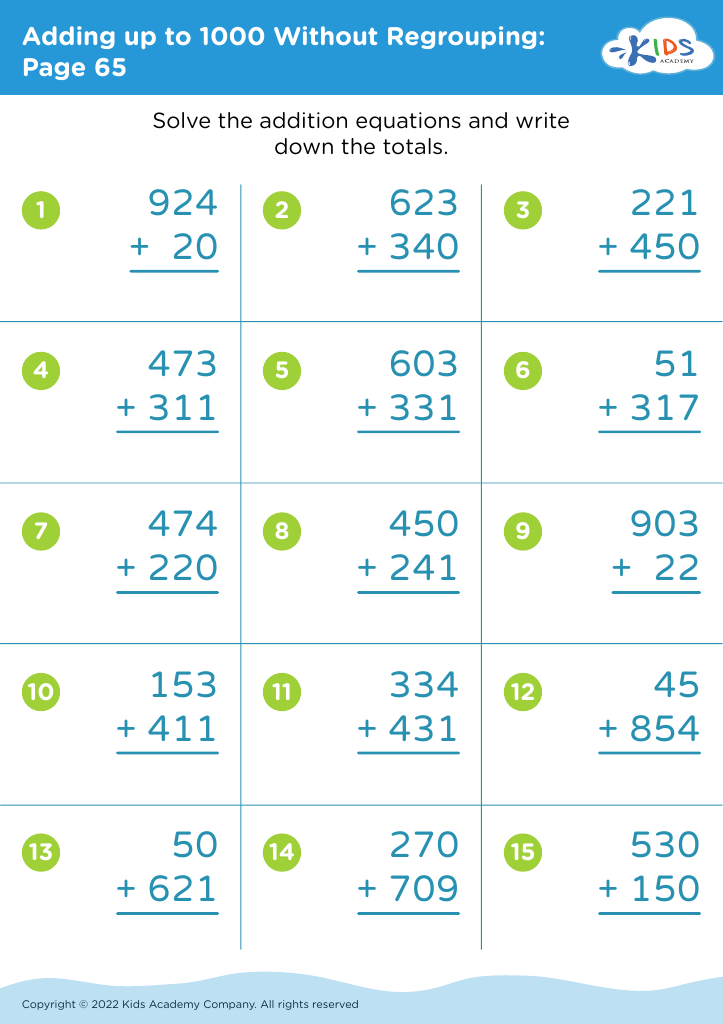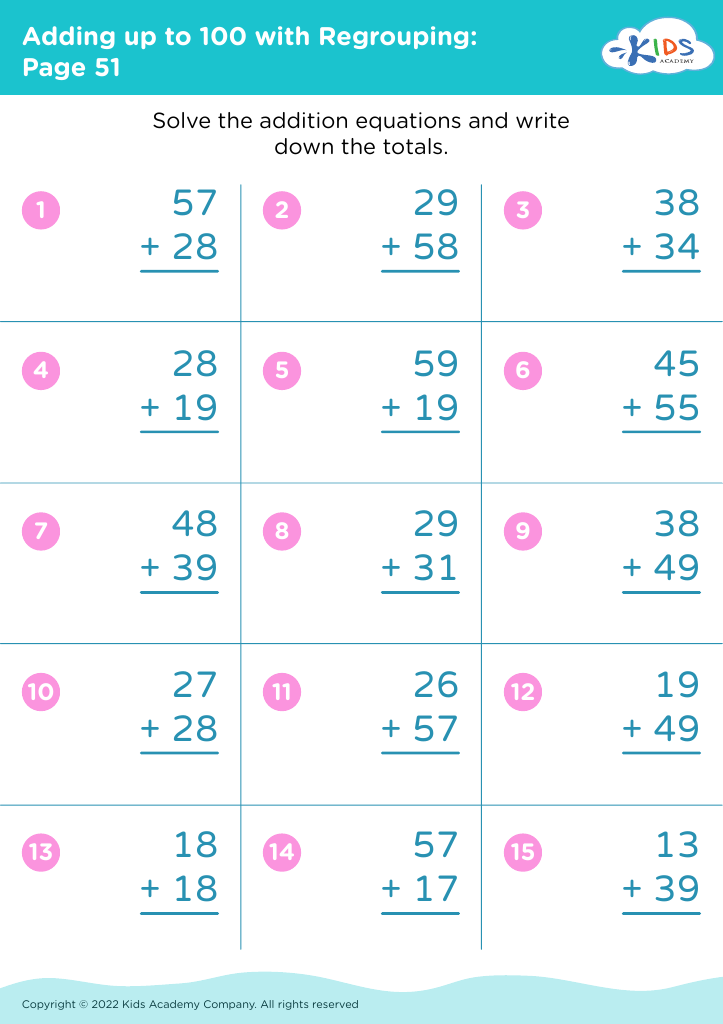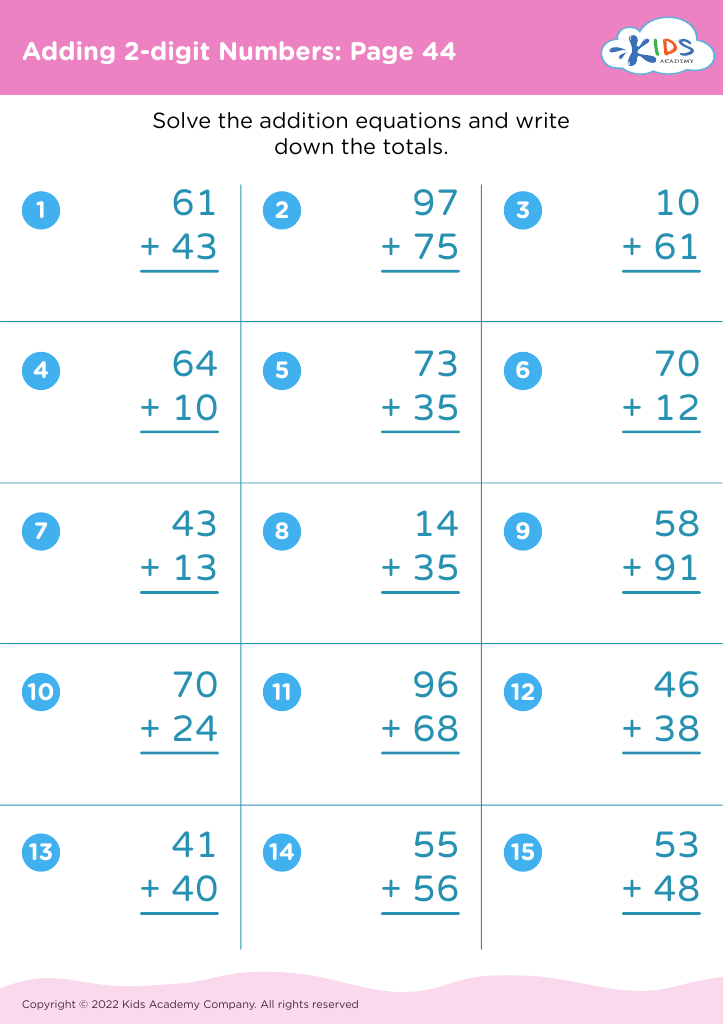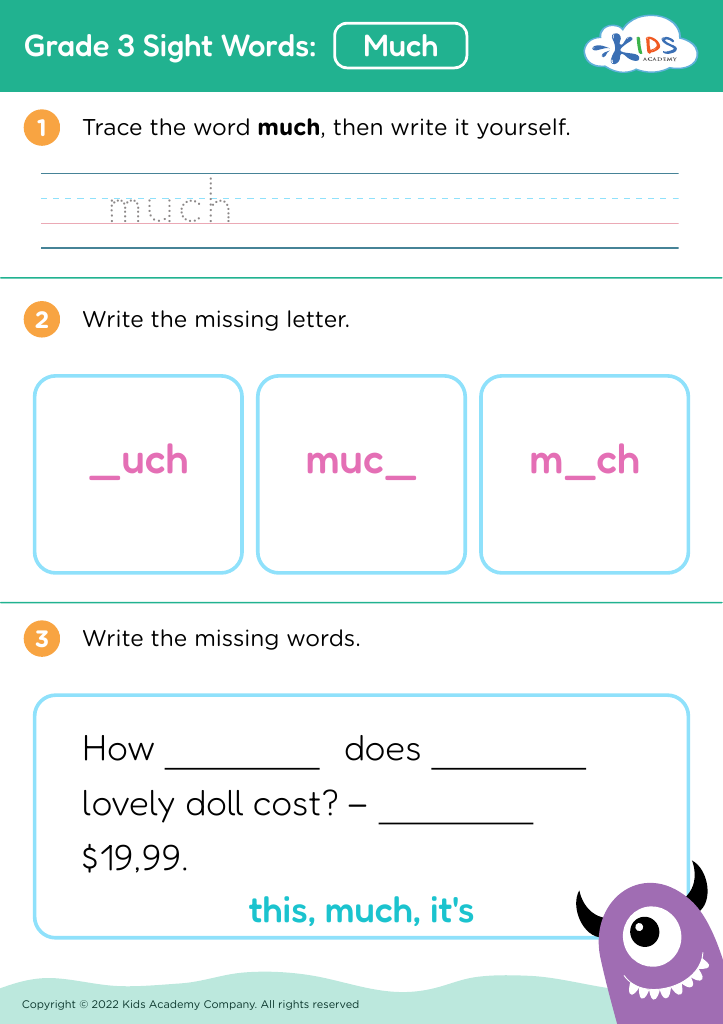Develop analytical thinking Worksheets for Ages 4-8
5 filtered results
-
From - To
Discover our "Develop Analytical Thinking Worksheets for Ages 4-8" designed to foster critical thinking and problem-solving skills in young learners. At Kids Academy, we offer a range of fun and engaging activities such as puzzles, matching games, pattern recognition exercises, and logic problems tailored for children aged 4-8. Our worksheets focus on enhancing cognitive abilities and encouraging kids to think independently and creatively. Perfect for both classroom use and homeschooling, these exercises help build a strong foundation for future learning success. Visit our website to explore the full collection and support your child's analytical thinking journey today!
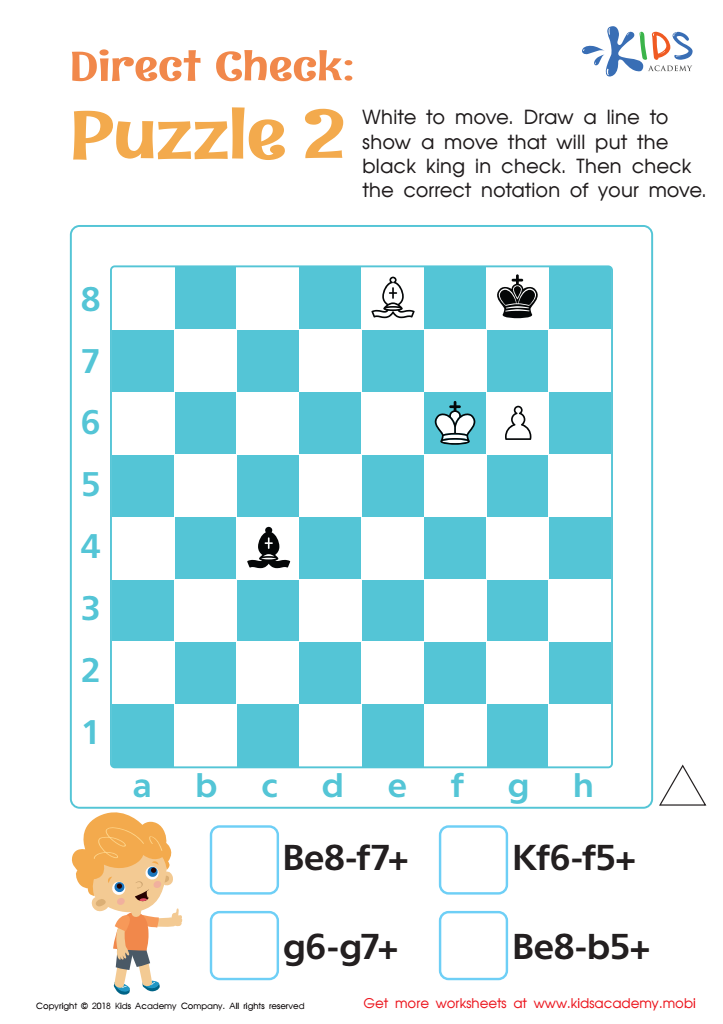

Direct Check: Puzzle 2 Worksheet
Parents and teachers play a crucial role in the early development of a child's cognitive skills, including analytical thinking, which is essential for problem-solving and decision-making. For children aged 4-8, cultivating analytical thinking helps lay a strong foundation for future learning and intellectual growth.
At this formative age, children's brains are rapidly developing, and they are naturally inquisitive. Encouraging analytical thinking involves activities such as puzzles, pattern recognition, and simple categorization tasks, which help strengthen neural connections. When children learn to observe, compare, and analyze early on, they develop better reasoning skills.
Moreover, instilling analytical thinking can enhance academic performance by equipping children with critical skills needed across various subjects. For example, in math, they understand not just the 'how' but also the 'why' behind concepts, leading to a deeper comprehension. In literacy, they can infer meaning and anticipate plot developments.
Beyond academics, it's about preparing children to navigate a complex world. Improved problem-solving skills empower kids to tackle everyday challenges more effectively. They become more independent and confident in their decision-making. Thus, parents and teachers should prioritize analytical thinking to nurture well-rounded, capable individuals who are prepared for the future.

 Assign to My Students
Assign to My Students
